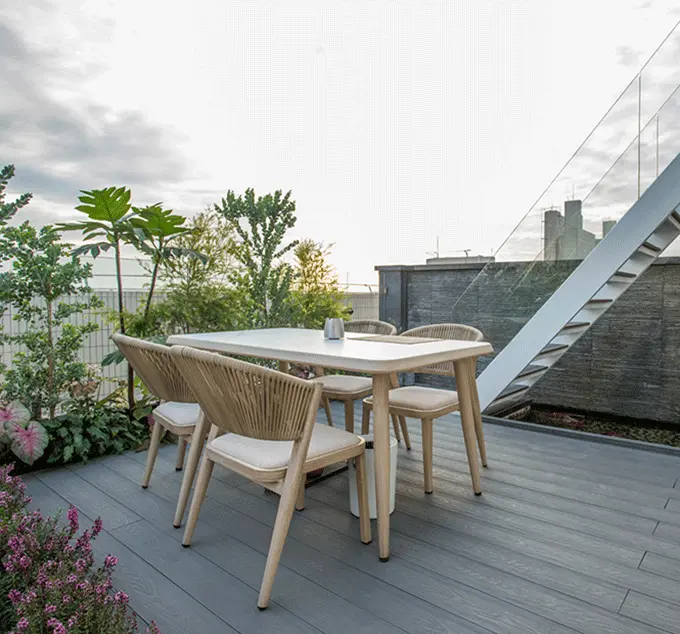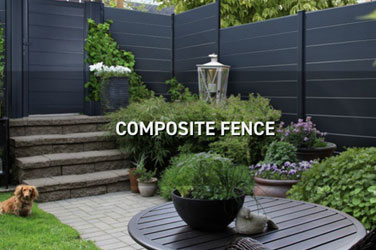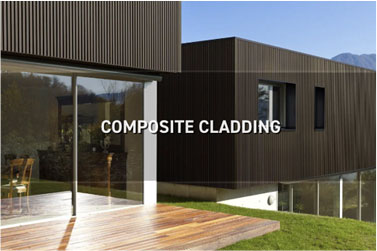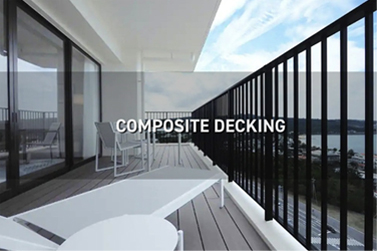Wood-plastic composite (WPC) decking is a popular choice for flooring and decking. WPC composite decking contains renewable and recycled wood fibers and plastic material, so no tree is cut to produce the decking. It is the best substitute for timber. The decking comes in a variety of colors and design combinations. WPC composite decking is divided into two main types, Co-extrusion and 1st generation decking. This article will compare the two types of composite decking, i.e., co-extrusion vs. generation WPC deck.
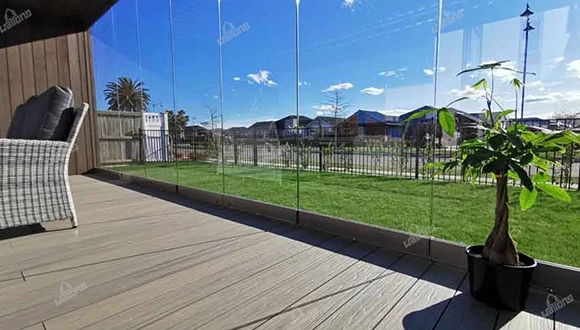
Co-extrusion vs. 1st generation decking
Before going into detail, let me briefly introduce the two types of WPC composite decking.
1st generation decking is also known as traditional composite decking or non-capped composite decking. It has a different surface texture than the co-extrusion type, which is the most economic composite decking.
Co-extrusion decking is an upgraded type of WPC composite decking that's more scratch-resistant, has practically no water absorption, and expands at a slower rate than standard composite decking.
After knowing the basic knowledge of the two types of WPC composite decking, let's compare them from the following parts.
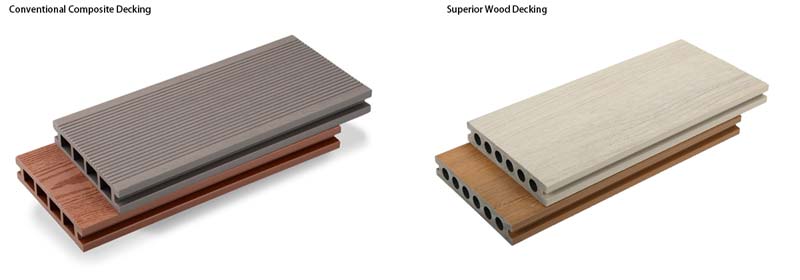
Appearance features
The first generation of WPC composite decking includes a wood powder surface. The surface is exposed to severe external conditions, making it susceptible to bacteria and fungus, UV radiation erosion, dampness, and color fading. Because there is no protective coating on the surface, it is less scratch-resistant. Compared with the first generation, co-extrusion decking in WPC has a 360-degree complete coating layer, providing full protection for the core to make the WPC decking more durable, UV stable, mold resistance, and stain resistance. The co-extrusion product's appearance features have been improved significantly over first-generation decking.
Service life and durability
Co-extrusion composite decking is designed from the wood-plastic composite core and engineering polymer cover protection. The covering acts as a shield to protect it from water, UV, scratch, and other risks. Due to the super-design and enhanced durability, co-extrusion decking lasts longer than the 1st generation WPC decking.
UV resistance
The 1st generation composite decking has less UV resistance as compared to co-extrusion decking. Because the first generation composite decking does not have a complete water swelling and bending deformation coating, which could not be blocked the ultraviolet rays from above and could not reduce the degree of fading within a certain period of time. What's more, the customize co-extrusion composite decking can be coated with the UV layer, helping in extending the service life.
Stain resistance and water resistance
Co-extrusion decking has better stain resistance. When some black ink is poured on both 1st generation decking and co-extrusion decking, the ink on 1st generation may leave ink residue, and it also infiltrates into the plate. However, the co-extrusion decking can be easily cleaned with water and soap. Co-extrusion decking has a full 360-degree coating, which can provide all-around protection for the core layer. Moreover, the water absorption rate of the coating is extremely low, which effectively prevents water from entering the core layer so that the plate is not prone to color or mold.
Scratch resistance
The surface layer of first-generation composite decking contains wood powder. When exposed to strong UV rays and humidity for a long time, the plastic wood molecular mixture on its surface is easily degraded. It is susceptible to cracking under the pull of external forces and its own thermal expansion and contraction. On the contrary, co-extrusion of WPC composite decking has a 360-degree coating on the covers and the core layer. This antioxidant and stabilizer firmly protect the stability of the internal structure of scratch resistant composite decking. Even if it is scratched, the coating protects the surface from leaving large scratches.
Price
Even though with the same raw material or the production process, WPC co-extrusion decking is superior to the first generation from the perfomance, which leads to its higher cost. But at the same time, the first generation deck WPC also needs more maintenance time and cost to keep longer service time, so the co-extrusion composite decking also is the cost-competitive choice.
Applications
These applications are quite similar, such as backyard, swimming pools, gardens, etc. Co-extrusion is usually preferred in public places with high pedestrian traffic for its higher resistance and better look.
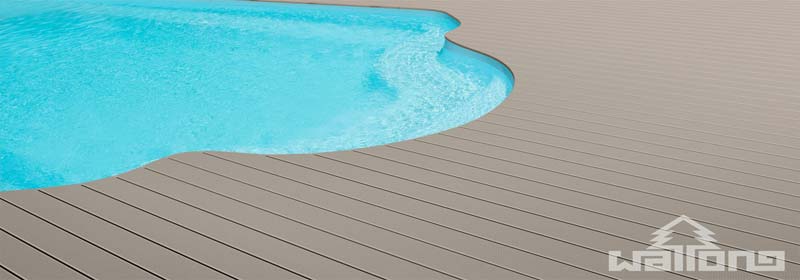
Wallong provides both Co-extrusion WPC Decking and 1st generation decking
Superior wood wholesale WPC decking WL-SDK13923
It is co-extrusion WPC extrusion decking, which has a high performance of 4-sided polymer shell super modified HDPE protective layer that protects against fading, scratching, and splintering. Hence there is a guarantee of a longer lifespan. With a hollow board type,139mm board width, and 23mm board thickness, this type of co-extrusion decking is widely used in public places for the benefits of fire-resistant, weather-resistant, and ultra anti-slip.
Conventional decking WL-DK14025F
It is the 1st generation WPC composite decking, and it is considered one of the most economic WPC decking with good quality. It is designed to be durable and attractive, making it a perfect choice for swimming pool, balcony, university, hospital, gym, and park. It includes black decking boards, brown decking boards, red composite decking boards and wide composite decking boards. You can customize both the size and color of the WPC decking. Some of the benefits of conventional decking include anti-slip, anti-scratch, easy to install, rot-free, maintenance-free, and many more.
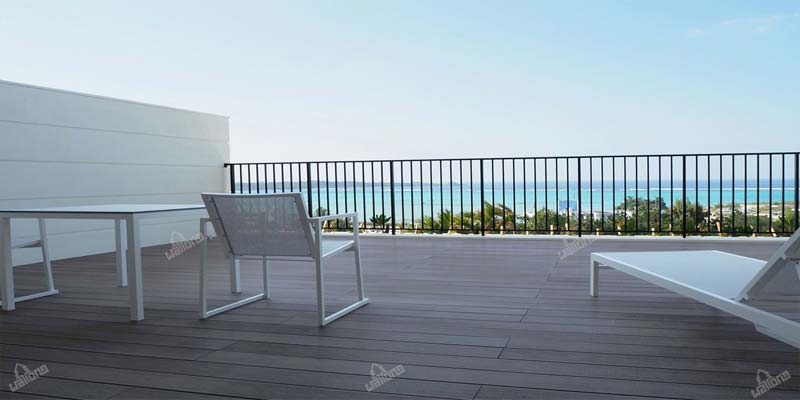
With more than 13 years of experience, Wallong is the most trusted supplier of wood plastic composite products. Wallong is dedicated to delivering premium quality WPC composite products with competitive WPC deck flooring price and professional services for our commercial, residential, and industrial customers. Please do not hesitate to contact us if you are seeking high-quality wood plastic composite decking, including WPC extrusion decking.


